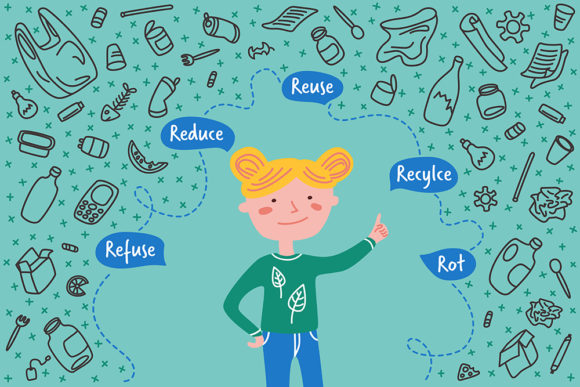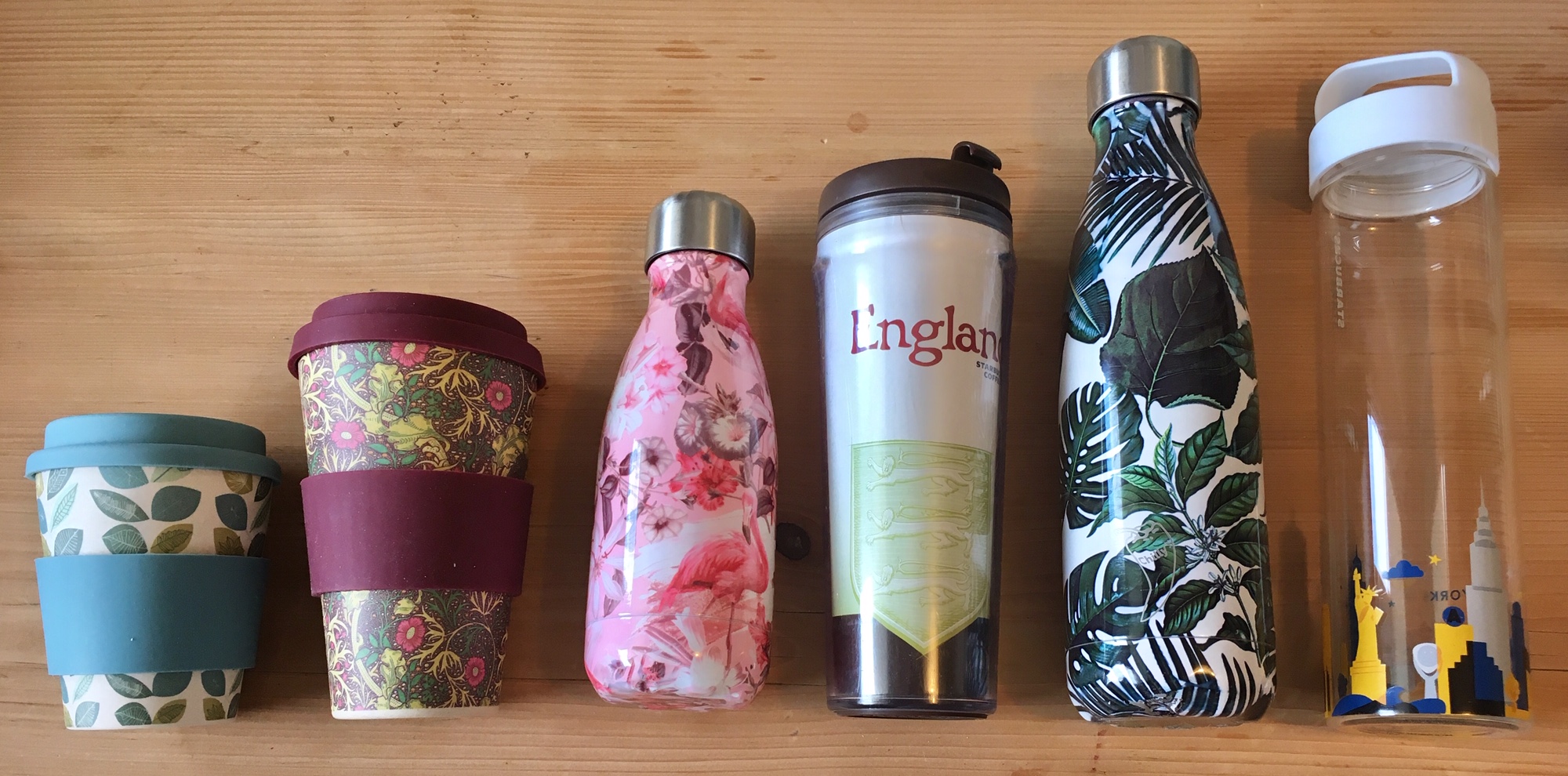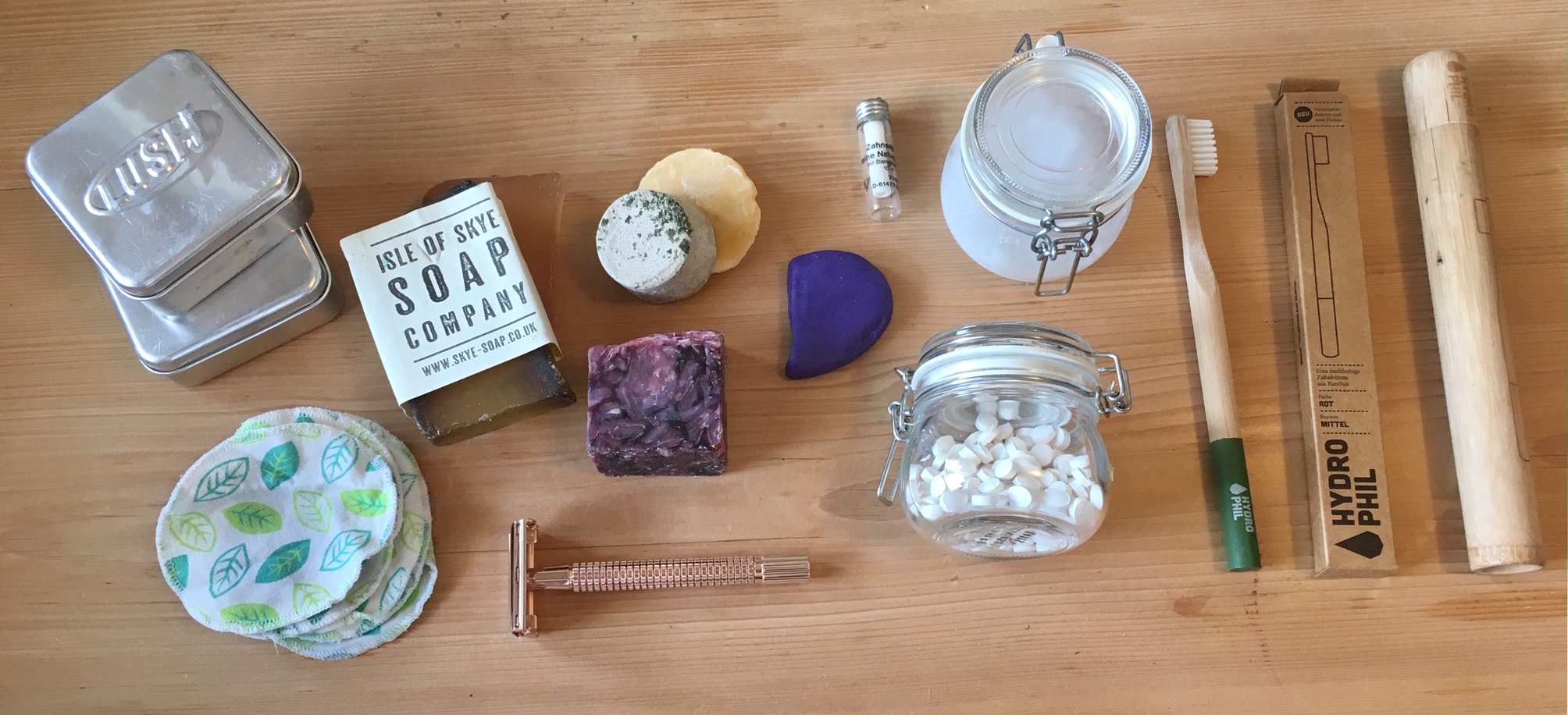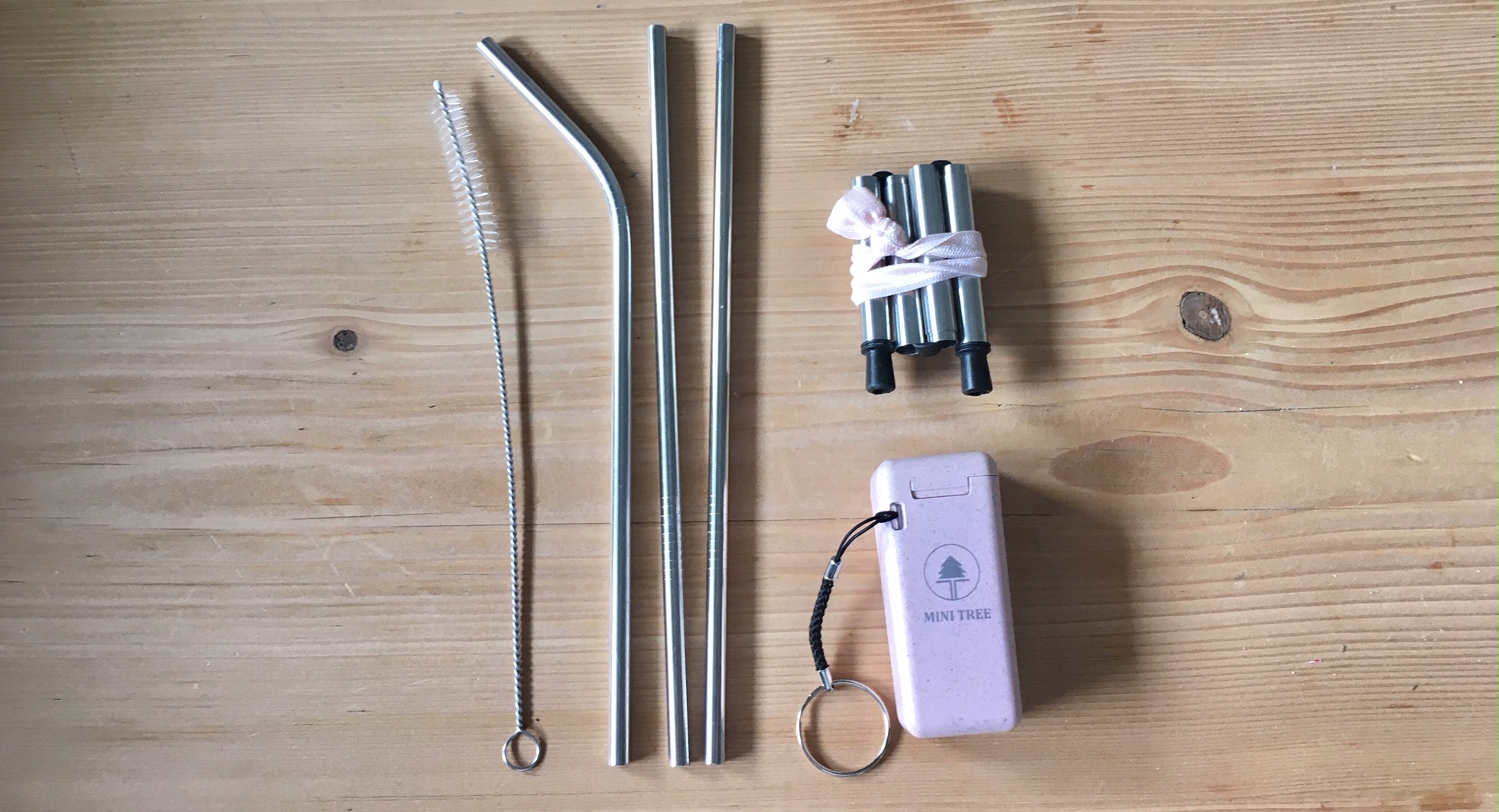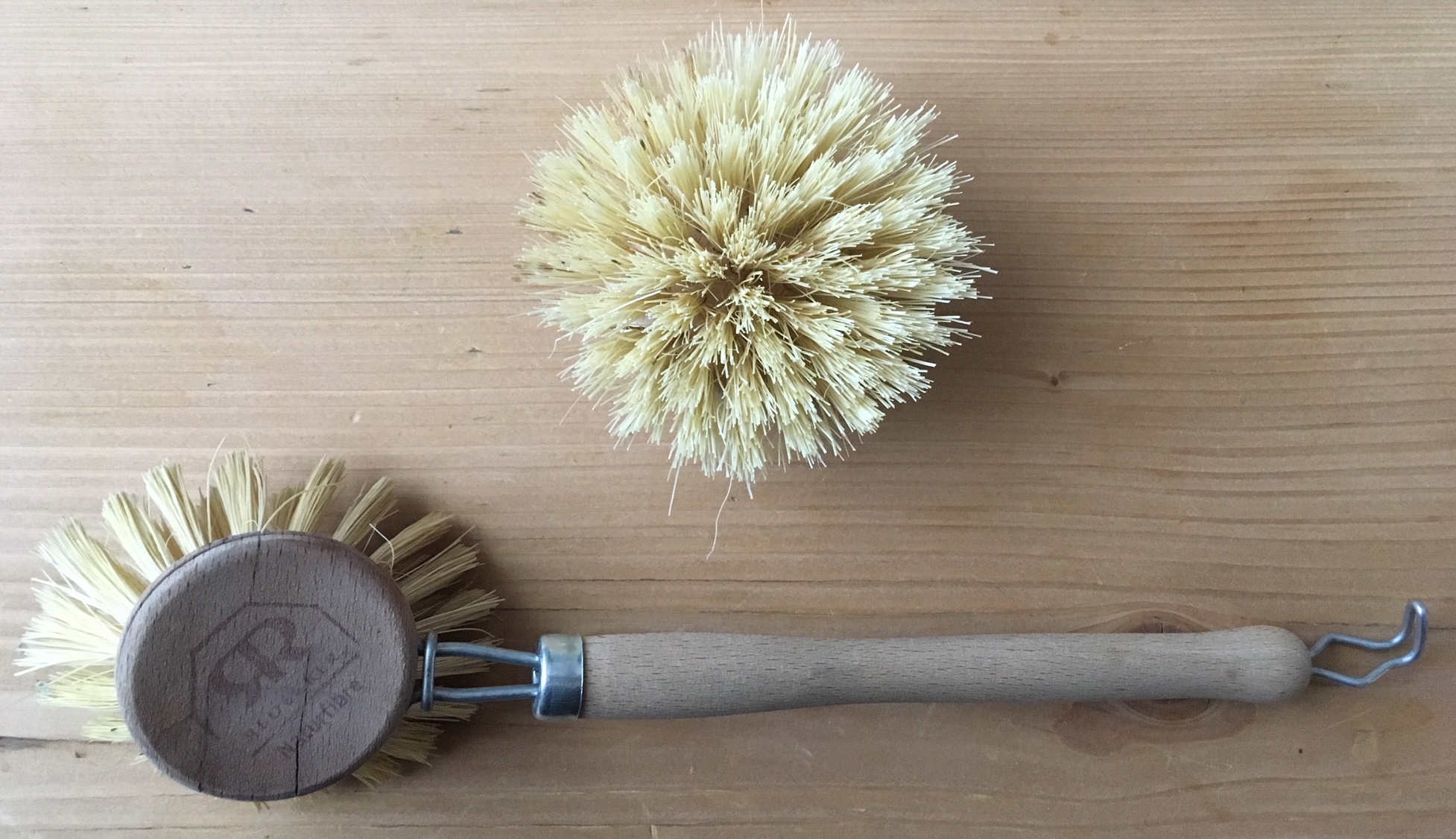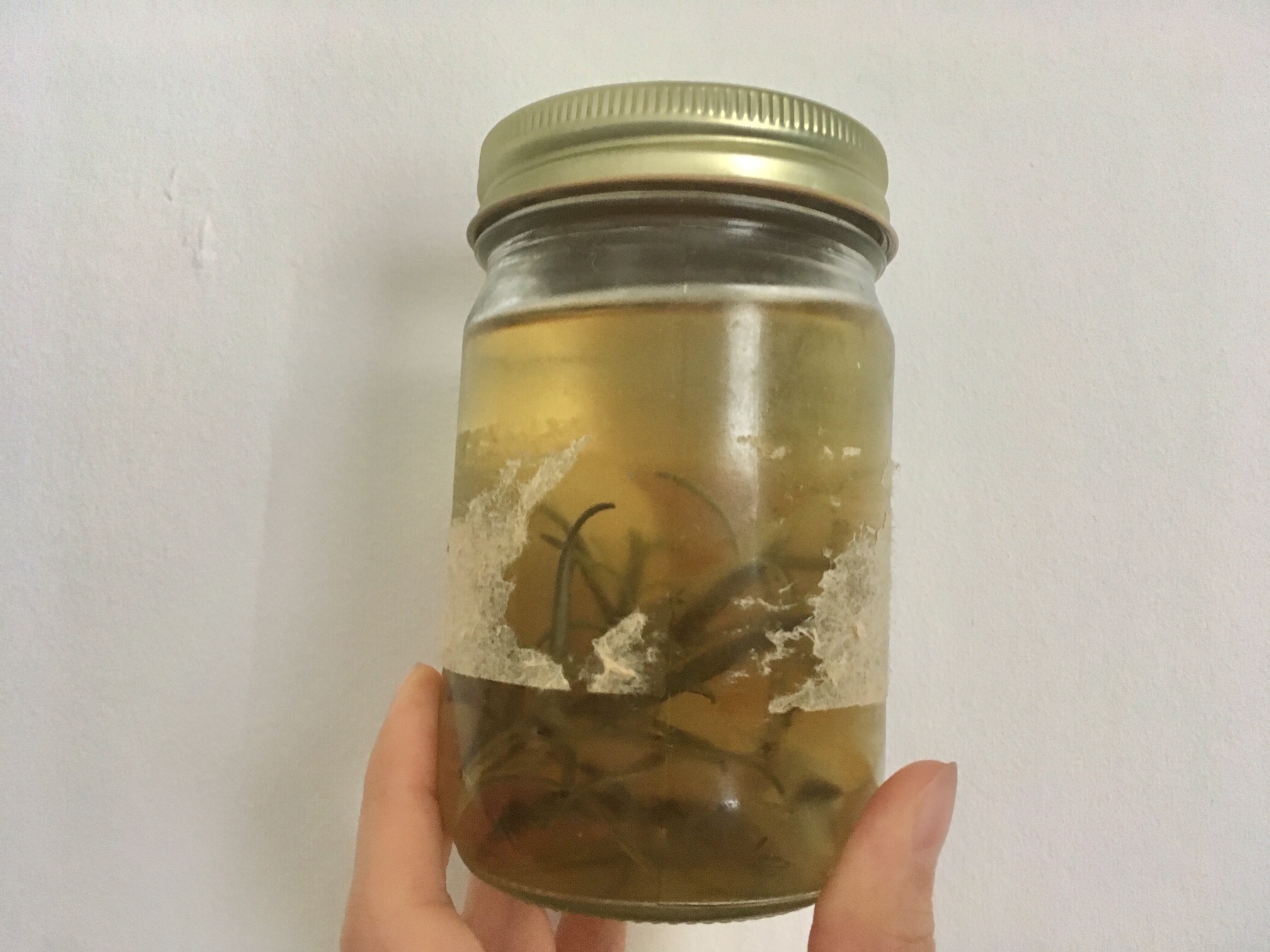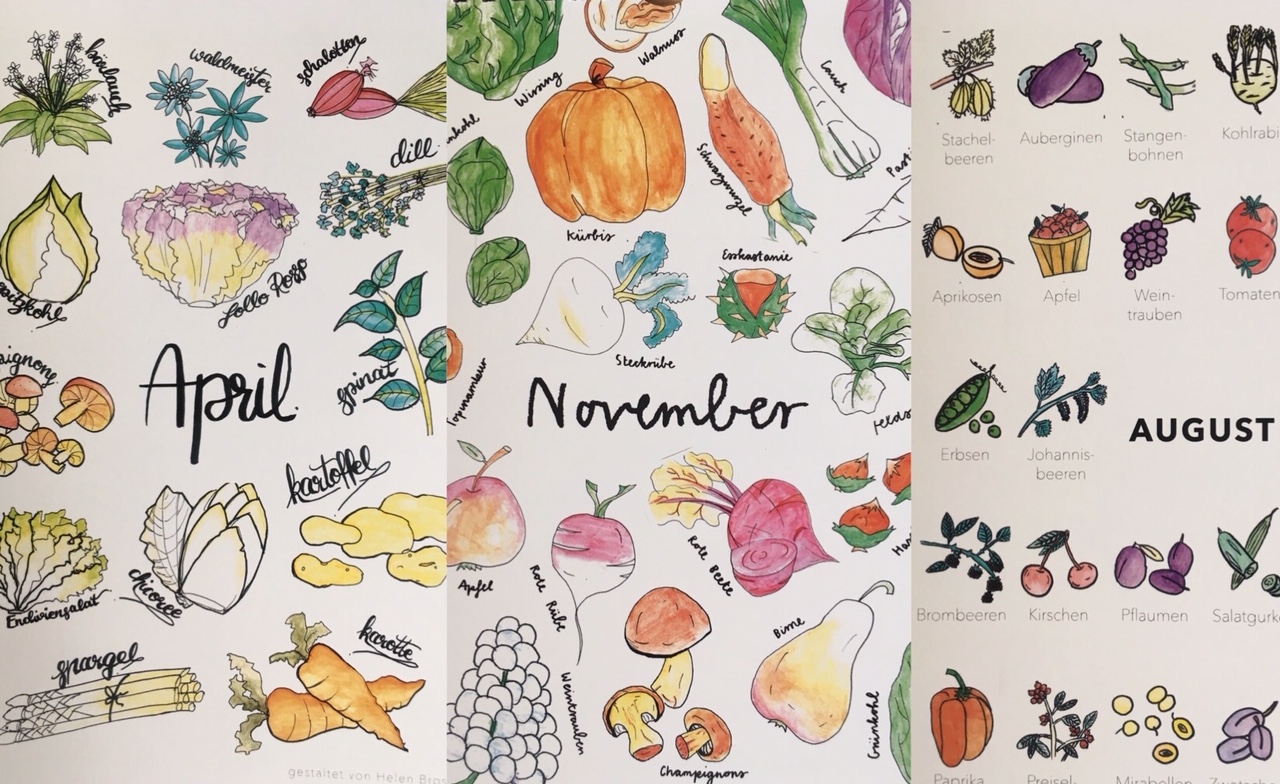With our planet slowly falling apart, we see words like ‘zero waste’ and ‘sustainability’ floating around the internet and feel guilt-tripped by people with 2 oz. waste jars that hold a year’s worth of trash. The truth is, you don’t need to be zero waste, never go on vacation and only wear hemp shirts from now on. There are so many super simple swaps that make for a great alliteration, save you some money (though sometimes only in the long run) and really help reduce your waste without jeopardizing your daily conveniences in any way. You’ve probably already started bringing your own bag to the grocery store and maybe even opting for package-free produce or taking public transport when you can but since there’s always more to be done, here’s a handy list of products to add to your arsenal in the battle against pollution.
I often have people tell me that they don’t throw their trash in the ocean so they’re fine. Unfortunately it’s not quite that easy and if you’ve ever taken a stroll along a river and stuffed your candy wrapper in a full bin on the side of the path there’s a good chance that the wind blew it right into the water and a few weeks later a fish choked on it. That might sound a bit extreme but it is ultimately the course of things and the reason we need to stop it at the source. After all, if your bathtub was flooding your bathroom, you wouldn’t reach for a mop first. You’d turn off the tap. That is exactly what we need to do with plastic.
A helpful little thing to remember in the process of being a bit more green are the 5 R’s of Sustainability:
Refuse: Say no to freebies and things you know you don’t need.
Reduce: Cut back on clothes shopping and opt for natural fibers when you do (microplastic gets into your water with every round of laundry). Trust me, I know how good it feels to buy that 7th plain white T but with 2,700 liters of water being needed for one t-shirt, it’s time we find a way to make retail therapy more sustainable. Get addicted to buying single, lonely bananas for example. Most people opt for bundles and the single ones will get tossed out. #justiceforbananas
Reuse: Bring reusable mugs, water bottles, bags and straws to avoid single-use anythings. Buy second hand and sell /donate clothes you no longer wear to give them a new life. See below for tips.
Recycle: Recycling is a touchy subject because statistics hint that up to 90% of recyclable waste does not actually get recycled. Nonetheless, make sure to separate your trash to give them their best chance. Go for recycled toilet paper and paper towels as they take significantly less water and resources to be produced but don’t rely on the general concept of recycling to justify huge amounts of plastic wrappers. See above for what to choose instead.
Rot: If you live off base, your landlord will provide a separate trash container for organic waste. You might also want to consider setting up a compost pile in your garden, which is a great way for children to learn about the natural process of rotting. Whenever you can, go for packaging that can rot as it will become one with nature again without leaving a trace.
Sustainable Staples in my Household
Again with the alliteration. Here are some products that I use on a daily basis.
Coffee and tea mugs and water bottles of all sizes. I agree that I probably don’t need this many (note to self: see ‘reduce’) but they are sooo pretty. Ok seriously though, I do not leave my house without either of these.
- The chilly’s bottles have fantastic designs (and it is a daily struggle of mine not to buy more of them) and keep your water cold for 24 hours or warm for 12. They also do coffee mugs and food containers. German tap water quality is superb and there is no need to drink bottled water instead. You might want to get a water filter but it’s fine straight from the tap, too and you can refill your bottle wherever you are: uni, school, work, airport, a public bathroom while shopping etc.
- Coffee mugs can be great souvenirs and mine are either bamboo to make them compostable or more than 5 years old. I can’t imagine traveling without these and no matter how full my backpack is, there is always room for them. It’s tempting to think ‘it’s just one coffee cup’ but if 8 billion people share that thought, a catastrophe is unavoidable. Bonus: most cafés give you a discount if you bring your own mug and you save the money in the long run.
Bathroom Essentials
- Shampoo, shower gel, conditioner and hand soap bars. They take some time to get used to but are completely zero waste if you buy them at Lush or come wrapped in paper if you get them at a drugstore. The tins are ideal for traveling. Bonus: no worries getting through airport security with a carry-on.
- Reusable cotton pads. Simply throw them in a laundry net and add to your next washing cycle. Air dry and you’re done. Either make them yourself by cutting squares out of old cotton t-shirts or order them online on amazon or etsy.
- Toothpaste tabs. Another one that takes a while to get used to but can be bought in bulk (paper) to cut back on plastic tubes.
- Coconut oil. Perfect for moisturizing and a great shaving cream substitute. Always available in glass.
- Bamboo toothbrush (and case). Can now be bought at almost every drug store or organic supermarket for not much more money than plastic ones. The case is from hydrophil and great for traveling. (Hydrophil donates 10% of proceeds to Viva Con Agua, a non-profit organization dedicated to providing clean dinking water and sanitary facilities to countries without either)
- Cotton dental floss. Comes in a little glass jar and is compostable.
- Safety razor. At circa €30, it’s not the cheapest but it’ll last a lifetime and the blades are very cheap to replace. Check out bareaya.com
Straws
Straws are a big topic right now and while I personally think they distract a bit from the bigger waste problem, it is certainly a place to start. If you haven’t seen the turtle video yet, do so now. I’ll wait. Americans alone use 500 MILLION straws a day. Straws are made from soft plastic, which is basically impossible to recycle and are used for such a short time that it stresses me out to think about them.
- At home, I use metal or glass straws that come with a little cleaning brush and on the go I have a handy key chain with a foldable straw inside.
- Final Straw had the original idea but there are much cheaper options online. Simply take it wherever you go and you’ll never need to ask for a straw again.
Dish Brush
I bought this one at Alnatura but they can be found pretty much everywhere these days. The handle and head are made from wood. The brush can be replaced and is 100% compostable.
Homemade All Purpose Cleaner
Many cleaning products contain ingredients that are just as harmful to the environment as a straw. Once they’re in our water they are everywhere and pollute our rivers and water supplies. Thankfully there are lots of eco-friendly brands that use organic ingredients but if you want to go all out and save some money, I suggest making your own. This is simply old lemon/ any citrus peels that I freeze until I have enough (remove the white bits first) and a twig of rosemary soaked in pure vinegar, which can be bought in glass bottles, for about 2 weeks and then topped up with water at a 1:1 ratio. Smells fresh and is a true warrior when it comes to those nasty white limestone stains in the kitchen and bathroom.
A Few More Things to Consider:
- Use beeswax wraps and tupperware instead of cling film. Cling film can’t be recycled and produces methane when it breaks down in landfill so it’s an overall inconvenience to the planet. Instead, you can store food in old jars or tupperware in the fridge or freezer or cover bowls with beeswax wraps, cotton sheets made water resistant with wax that can be rinsed and reused over and over again. They often have cute designs and can be bought at gruene-bude.de
- Introduce meatless Mondays in your household. Being meat free once a week already cuts down your meat-related emissions by 1/7.
- Go for plant milk from time to time. One glass of milk requires 0.6 kg of CO2, 1.6 sq. m of land and 120 liters of water to make it to your table. Oat milk on the other hand only produces 0.2 kg of CO2, requires 0.2 sq. m of land and merely needs 15 liters of water. Just something to think about.
- Check for a bulk food store around you. Unverpackt in Kaiserslautern and Schüttgut in Stuttgart and Bio Unverpackt in Wiesbaden sell a wide range of produce, candy, grains, oils, toiletries and zero waste supplies. Remember to bring your own bags and containers and you’re good to go. If you don’t have any yet, you can also buy some at your respective store. See wastelandrebel.com to find the zero waste store closest to you.
- Get a calendar that tells you what fruit and vegetables are in season and shop accordingly. Choose regional products whenever you can.
-
The most important thing to remember is that every action has consequences and while that can make you feel bad about every steak you eat, what it should really do is remind you that all these little swaps and steps have the power to make a difference one straw or almond milk macchiato at a time. Alexa, play “Wake Up America” by Miley Cyrus.
Cover photo by olga boat
Author’s profile: Leonie studies English literature in Frankfurt, Germany. Her love for nature and traveling motivates her to reuse reduce and recycle in an effort to keep our planet beautiful and picturesque to make sure MIG never runs out of destinations.

